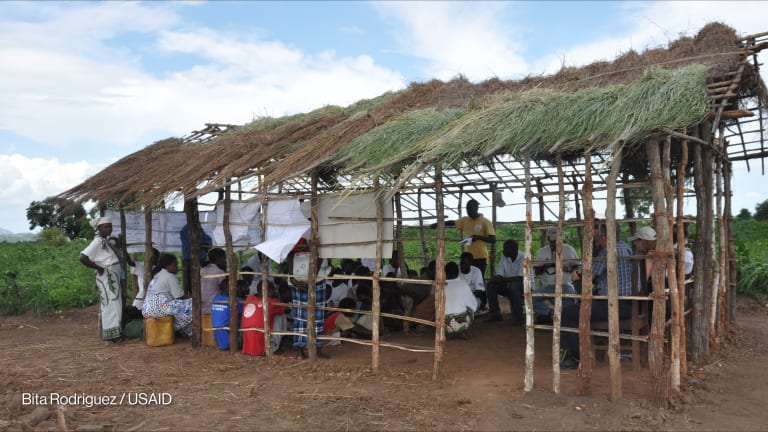
Donors committed more money this week to try to stave off famine in the Sahel region of Africa, though the message from a high-level meeting in Paris was that they need new ideas as well.
“The increasing numbers [of people in crisis that] we are witnessing require us to draw the sovereign conclusion that our current way of responding to this crisis is not enough,” said Chris Nikoi, regional director for West and Central Africa at the World Food Programme, during an event Wednesday that was co-organized by the Organisation for Economic Co-operation and Development’s Sahel and West Africa Club, the European Union, and the Global Network Against Food Crises.
Get the inside track on how agriculture, nutrition, sustainability, and more are intersecting to remake the global food system in this weekly newsletter.
The number of people facing a food and nutrition crisis across 17 states in West Africa and the Sahel, plus Cameroon, is on track to hit 40.7 million by June, according to SWAC. That’s up from 28.9 million in June 2021, 19.1 million in 2020, and 10.7 million in 2019. Three years ago, the main causes were insecurity and banditry, SWAC said. Since then, COVID-19, inflation, population displacement, high food prices, drought, and now the secondary effects of the Russia-Ukraine crisis have been added to the list.
At the same time, donor support has waned. Between 2020 and 2021, only 41% of the humanitarian funding required to meet urgent needs in the central Sahel were met, according to the United Nations — the lowest percentage since 2015.
Nikoi said that the amount of aid is insufficient but that “a course direction change and a different way to work collectively” are also required.
He offered four remedies: more political commitment; “more joined-up dialogue on assessment of the crisis”; more coordination of humanitarian, development, and peace groups toward collective outcomes; and appropriate funding instruments.
Mathias Cormann, OECD’s secretary-general, attended the meeting in person, advocating for action to also address the root causes of the crisis, such as through agrifood value-chain development and intracontinental trade. Africa’s social and economic development will be a focus at an OECD ministerial council in June, Cormann added.
But if familiar calls for action on the development-humanitarian-peace nexus during more than three hours of prepared statements had many participants gazing wistfully at their smartphones, the meeting still left some with cause for hope.
“I have the impression that there is no new approach. It’s the same approach. There have not been any new ideas for a long time. People know what must be done,” Hassoumi Massaoudou, the foreign minister of Niger, told Devex. “The difference now is that they say it with much more engagement. … We could think that events in Ukraine might eclipse the interest in the Sahel, but I don’t have that impression.”
Michel-Olivier Lacharité of Médecins Sans Frontières told Devex by email Wednesday that the humanitarian response must be guided by the scale of need, particularly in currently overlooked regions of northwestern Nigeria and southern Niger.
“In Katsina state, in northwest Nigeria, our medical teams are admitting 1,000 children each week to MSF’s nutritional programme,” Lacharité wrote, “even in the midst of what is traditionally the low season for malnutrition.”
Abdoulaye Mohamadou from the Permanent Interstate Committee for Drought Control in the Sahel, or CILSS, told Devex that donors needed to move away from the more political, security-focused development programs of recent years.
And he said African leaders were changing, too.
“In Africa as well, there is a realization that we are going in circles if we don’t have much more daring policies in these regions,” he said.
For example, he called for more investment in irrigation to combat the effects of climate change by maximizing the use of water above and below ground. That followed Mohamed Bazoum, the president of Niger, who used his speech to call for more flexible, multiyear funding from development donors to address the structural causes of the current hunger crisis.
“We can’t structurally organize agriculture with pilot projects,” Mohamadou told Devex. “It’s the programs of 10, 20 years that will change agriculture. So all the pilot interventions of three to four years will not change much.”









